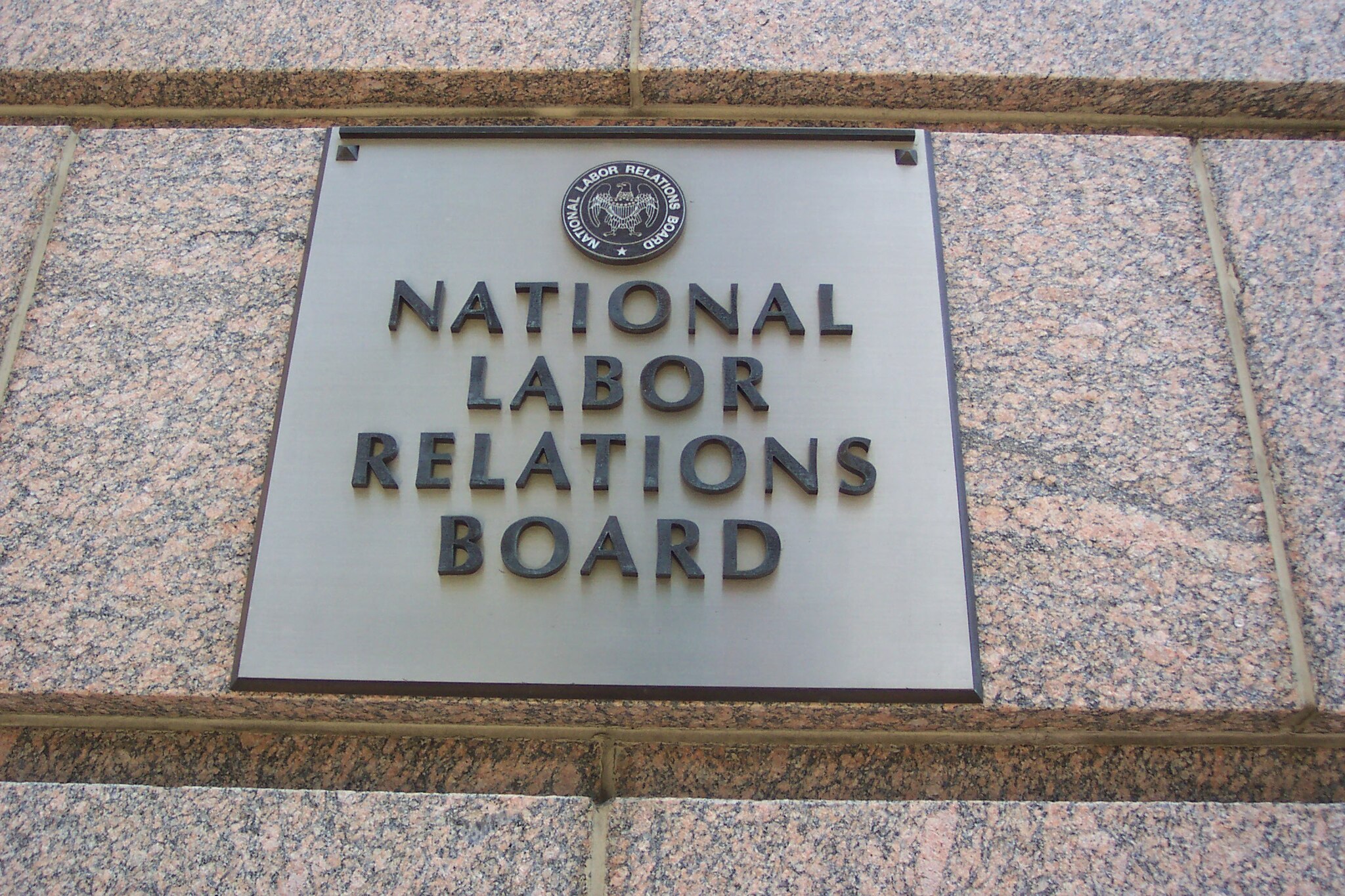
Henry Green is a student at Harvard Law School.
In today’s News and Commentary, a proposal to convert the NLRB into a purely adjudicatory “labor court,” a work stoppage among court-appointed lawyers in Massachusetts, and “portable benefits” laws gaining ground in the states and in Congress.
In the Regulatory Review, OnLabor contributor Samuel Estreicher, G. Roger King, and David S. Sherwyn propose replacing the NLRB with a purely adjudicatory, non-rulemaking “labor court.” Six bipartisan judges (two Democrats, two Republicans, and two independents) serving six-year terms would preside, with four votes required to appoint an administrative law judge or to overturn precedent. The Board’s Office of General Counsel would be statutorily separated from the court. The General Counsel would hold authority over regional offices, administer elections and investigate and prosecute unfair labor practice charges; however, the labor court would be represented in federal courts by a newly created Solicitor. Adversely affected parties by labor court decisions could seek review in federal court, but the General Counsel would not have standing to seek such review. The authors suggest at least two reasons to embrace their proposal. First, the bipartisan, off-cycle appointments of judges and steeper requirements for overturning precedent could address the problem of Board “flip-flopping.” Second — perhaps more urgently, following Supreme Court’s ruling in Wilcox last week — the labor court “would not have any executive authority” and as such “would likely survive any new interpretation or overruling” of Humphrey’s Executor.
In Massachusetts, the Boston Globe reports that many court-appointed attorneys are engaged in a work stoppage. The striking lawyers are “bar advocates,” private attorneys who represent 80 percent of indigent defendants in Massachusetts – the state’s public defender agency represents the remaining 20 percent. The Globe notes that it’s not yet clear how many of the state’s 2,600 bar advocates have stopped taking cases. Two decades ago, after a similar work stoppage in Western Massachusetts led to defendants being held for days without arraignment, the state’s Supreme Judicial Court created a remedy for defendants without counsel: an arrested defendant can only be held for a week before they are assigned a lawyer. If the week elapses without a lawyer being appointed, they can petition a single justice on the Supreme Judicial Court for their release. The article notes that court-appointed lawyers receive higher pay in Rhode Island, New Hampshire, and Maine than in Massachusetts. The lowest paid Massachusetts bar advocates earn $65 per hour. Earlier this year, a proposal to raise pay rates for Massachusetts bar advocates “failed to gain traction” in the state legislature, per the Globe.
Bloomberg reports that “portable benefits” laws are gaining traction in states and in Congress, despite criticism from unions and some Democrats. The laws, which have passed in Utah, Tennessee, and Alabama, allow employers to offer benefits to workers without “implicat[ing] an employment relationship” – that is, without implying the workers are employees under the Fair Labor Standards Act. The article notes a pilot program for portable benefits in Maryland, in addition to the Republican-led states cited above. Republicans in Congress have introduced national legislation that would create a “safe harbor” for employers to provide benefits while continuing to treat workers as independent contractors. “Labor and employment laws designed for a different time no longer address the needs of today’s independent workers,” says a white paper issued by the Republican chair of the Senate Labor Committee in support of the proposal. While the article notes some bipartisan support for the proposals, it also notes that Democrats and unions are opposed, arguing the laws would help companies misclassify workers and that the proposed portable benefits are not enough to replace the benefits that workers receive with employee status.






Daily News & Commentary
Start your day with our roundup of the latest labor developments. See all
November 21
The “Big Three” record labels make a deal with an AI music streaming startup; 30 stores join the now week-old Starbucks Workers United strike; and the Mine Safety and Health Administration draws scrutiny over a recent worker death.
November 20
Law professors file brief in Slaughter; New York appeals court hears arguments about blog post firing; Senate committee delays consideration of NLRB nominee.
November 19
A federal judge blocks the Trump administration’s efforts to cancel the collective bargaining rights of workers at the U.S. Agency for Global Media; Representative Jared Golden secures 218 signatures for a bill that would repeal a Trump administration executive order stripping federal workers of their collective bargaining rights; and Dallas residents sue the City of Dallas in hopes of declaring hundreds of ordinances that ban bias against LGBTQ+ individuals void.
November 18
A federal judge pressed DOJ lawyers to define “illegal” DEI programs; Peco Foods prevails in ERISA challenge over 401(k) forfeitures; D.C. court restores collective bargaining rights for Voice of America workers; Rep. Jared Golden secures House vote on restoring federal workers' union rights.
November 17
Justices receive petition to resolve FLSA circuit split, vaccine religious discrimination plaintiffs lose ground, and NJ sues Amazon over misclassification.
November 16
Boeing workers in St. Louis end a 102-day strike, unionized Starbucks baristas launch a new strike, and Illinois seeks to expand protections for immigrant workers